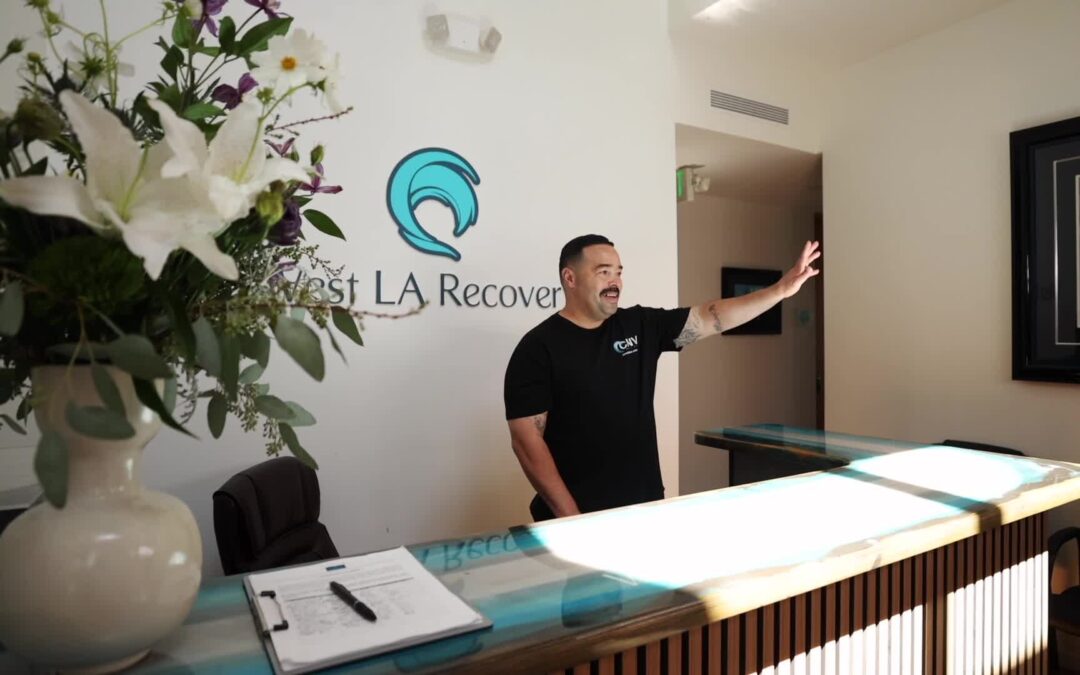Introduction
Understanding the differences between Narcotics Anonymous (NA) and Alcoholics Anonymous (AA) is crucial for anyone on the journey of addiction recovery. Both programs offer support through a structured 12-step framework, but they focus on different substances and philosophies.
Alcoholics Anonymous, founded in 1935, primarily addresses alcohol addiction and emphasizes spiritual growth through a higher power. On the other hand, Narcotics Anonymous, which began in the 1950s, deals with a wider range of substance dependencies, including illegal drugs and prescription medications, and emphasizes personal empowerment.
Knowing these differences can greatly affect an individual’s recovery journey. This article will break down the unique aspects of NA and AA, exploring their core principles and how they align with personal recovery goals. By reading this article, you’ll gain a better understanding of how each program works and be more prepared to choose the best path for your specific situation.
The Foundations of Alcoholics Anonymous (AA) and Narcotics Anonymous (NA)
Alcoholics Anonymous (AA)
Alcoholics Anonymous (AA) was established in 1935 by Bill Wilson and Dr. Bob Smith, two individuals who recognized the power of shared experience in combatting alcoholism.
Their collaboration led to the creation of a structured framework known as the 12-step program, which remains central to AA’s philosophy today. This program emphasizes concepts like admitting powerlessness over alcohol, seeking spiritual growth, and making amends for past actions. AA’s core belief rests on the notion that reliance on a higher power can guide individuals towards sobriety.
A significant historical milestone for AA was the publication of “The Big Book” in 1939. This book documented personal stories of recovery and provided a detailed outline of the 12 steps, serving as both inspiration and guidance for countless individuals struggling with alcohol addiction worldwide.
Narcotics Anonymous (NA)
Narcotics Anonymous (NA) emerged in the 1950s, drawing from the foundational principles of AA but expanding its focus to encompass drug addiction recovery.
While maintaining a similar 12-step framework, NA adapted its approach to be more inclusive of all forms of addiction, not just those related to alcohol. The organization’s emphasis shifted towards personal responsibility and empowerment, allowing members to take charge of their recovery journey.
Key milestones for NA include its rapid expansion during the late 20th century as it gained popularity among those battling various substance dependencies. NA’s literature, including “The Basic Text,” became an essential resource, offering practical advice and fostering a sense of community among participants.
Global Impact
Both AA and NA have developed into global movements, offering support networks that transcend cultural and geographical boundaries. Their shared history underscores a commitment to mutual aid, providing individuals facing addiction with a platform for healing through connection and understanding.
Understanding the Key Differences Between NA and AA Programs: A Comprehensive Guide for Individuals in Recovery
Alcohol vs Drugs: Substance-Specific Programs
Alcoholics Anonymous (AA) and Narcotics Anonymous (NA) differ notably in their substance focus.
- AA is centered around alcohol addiction, offering a sanctuary for individuals who find themselves powerless over alcohol. This specificity allows members to deeply explore issues directly related to alcoholism, fostering a strong community of shared experiences tied to this particular substance.
- NA adopts a more inclusive approach, welcoming individuals struggling with various drug addictions. Whether it’s illegal drugs or prescription medication, NA provides support regardless of the specific substance involved. This inclusive stance broadens the community, enabling members to connect over diverse challenges and insights tied to different forms of addiction.
Step 1 Differences: Language in Recovery Programs
The language used in Step 1 of each program offers further insight into their distinct philosophies:
- AA’s Step 1 Language: “We admitted we were powerless over alcohol—that our lives had become unmanageable.” This wording highlights alcohol as the central point of powerlessness, framing the recovery journey around battling this specific addiction.
- NA’s Step 1 Language: “We admitted we were powerless over our addiction—that our lives had become unmanageable.” By focusing on addiction in general, NA promotes a broader understanding of powerlessness. This can resonate with individuals whose struggles may not be confined to one substance, providing a more comprehensive framework for those dealing with poly-substance abuse.
The choice of language in these initial steps can significantly influence how individuals perceive their recovery journey. AA’s specificity may offer deeper resonance for those exclusively battling alcohol dependency. In contrast, NA’s generalized approach may better support those facing multiple addictions or shifting between different substances.
Both AA and NA play crucial roles in the spectrum of recovery programs available today, each offering unique benefits based on personal circumstances and preferences. For those seeking professional help, West LA Recovery offers compassionate and comprehensive addiction treatment services tailored to individual needs. Their resources can also provide valuable information for individuals in recovery. If you’re considering reaching out for assistance, you can easily contact them.
Spirituality vs Personal Responsibility: Exploring the Divergent Approaches to Recovery Emphasized by NA and AA
Alcoholics Anonymous (AA) and Narcotics Anonymous (NA), while similar in their 12-step frameworks, offer distinct paths in the journey of recovery. One of the most significant differences lies in their approach to spirituality and personal responsibility.
AA’s Emphasis on Spirituality
The program encourages members to acknowledge a power greater than themselves as a vital component of recovery. This reliance on a higher power is woven into the steps, fostering spiritual growth that many members find transformative. The notion of surrendering control to something beyond oneself serves as a cornerstone for those who struggle with feeling powerless over alcohol. Meetings often include discussions that explore how members’ spiritual journeys support their sobriety.
NA’s Focus on Personal Accountability
While not dismissing the concept of a higher power, NA places more focus on individual responsibility in overcoming addiction. The language used in its steps reflects this shift, promoting self-empowerment as key to achieving lasting sobriety. NA meetings provide an environment where personal stories of overcoming adversity through self-determination are shared, inspiring others on similar paths.
Both approaches aim to cultivate resilience and ongoing commitment to sobriety, yet they offer distinct pathways: spirituality in recovery with AA’s reliance on external spiritual forces versus individual empowerment with NA’s focus on internal strength. These differing philosophies allow individuals to choose a path that resonates more closely with their beliefs and needs, offering diverse avenues for healing and support within the recovery community.
Legal vs Illegal Substances: Examining the Types of Substances Addressed by Each Program
When navigating the landscape of recovery programs, understanding the types of substances each program addresses is crucial. Alcoholics Anonymous (AA) primarily focuses on legal substances, specifically alcohol. Alcohol, while legal, poses significant challenges for many individuals, making AA a dedicated space for those grappling with alcohol dependency.
In contrast, Narcotics Anonymous (NA) takes an inclusive approach toward a broader spectrum of addictions, encompassing both illegal substances and prescription medications. NA provides support for individuals facing challenges with drugs that may be illicit or legally prescribed but misused. This inclusivity reflects NA’s recognition of the multifaceted nature of substance addiction beyond alcohol alone.
To further support individuals in their recovery journey, programs such as Partial Hospitalization Programs and Intensive Outpatient Programs are also available. These programs offer structured treatment options that can be tailored to meet individual needs, providing additional resources and support for those in recovery.
Key Differences Between AA and NA
Understanding these distinctions helps individuals select the program that aligns with their specific needs. Both AA and NA offer tailored support, yet their differing scopes make them uniquely suited to different addiction profiles. This clarity aids in making informed decisions about which path might be most beneficial on one’s journey toward sobriety.
AA’s Focus:
- Alcohol as the primary substance
- Emphasis on powerlessness over alcohol
NA’s Scope:
- Includes illegal drugs such as heroin and cocaine
- Addresses prescription medication misuse
- Broader language in Step 1 to encompass varied addictions
Common Ground: The Shared Principles That Unite NA and AA in Their Mission to Help Individuals Achieve Lasting Recovery
Despite the differing focus on substances and approaches to recovery, Narcotics Anonymous (NA) and Alcoholics Anonymous (AA) share foundational principles that underpin their effectiveness. Both programs are rooted in support group therapy, where members benefit from a community of peers who understand their struggles intimately.
Key shared principles include:
- Peer Support: Both NA and AA prioritize creating a sense of belonging among members. Participants gather in regular meetings to share personal stories, challenges, and successes, providing mutual support that fosters encouragement and understanding.
- Shared Experiences: The power of personal testimony plays a crucial role in both organizations. Members learn from one another’s experiences, gaining insights and strategies that can be applied to their own recovery journeys.
- 12-Step Framework: While there are variations in language and emphasis, the structured 12-step program serves as a guiding framework for both groups. It provides a roadmap for personal transformation through accountability, reflection, and service to others.
These commonalities highlight the therapeutic techniques that make both NA and AA valuable resources for individuals seeking sobriety. By leveraging these shared elements, participants can build resilient support networks critical for achieving lasting recovery.
Choosing Your Path to Recovery: Factors to Consider When Deciding Between NA or AA
Finding the right program for recovery involves understanding how NA and AA are different, and considering personal preferences to select the most suitable support group for your journey towards sobriety.
Key Considerations:
- Substance Focus: If your struggle is primarily with alcohol, AA’s focus on alcoholism might resonate more deeply. However, if your challenges extend to narcotics or a combination of substances, NA’s inclusive approach could align better with your needs.
- Spiritual vs Personal Empowerment: Reflect on whether you prefer AA’s spiritual growth emphasis through reliance on a higher power or NA’s focus on personal responsibility and empowerment. This distinction can significantly influence your comfort and effectiveness within the program.
- Meeting Environment: Attend both an AA and an NA meeting to gauge which environment feels more supportive and aligns with your recovery goals. Each meeting has its own culture and dynamic, playing a crucial role in how supported you feel.
- Terminology Comfort Level: The language used in each program’s steps can impact how you perceive your path to recovery. Consider which terminology resonates with you personally, as this can affect your engagement with the program.
Personal preferences are paramount when choosing between NA and AA. Engaging with both programs initially can provide insights into which aligns best with your unique recovery journey.
Conclusion: Making an Informed Decision on Your Recovery Journey with NA or AA
Understanding the summary of differences between Alcoholics Anonymous (AA) and Narcotics Anonymous (NA) is vital for those embarking on a recovery journey. Both programs offer structured frameworks for sobriety, though they cater to distinct needs and philosophies.
Key distinctions include:
- Substance Focus: While AA focuses primarily on alcohol-related issues, NA addresses a wider range of substance addictions.
- Spiritual vs. Personal Responsibility: AA emphasizes spiritual growth through reliance on a higher power. In contrast, NA encourages personal empowerment and accountability.
- Terminology: Variations in the language used in their respective steps may resonate differently with individuals depending on their substance challenges.
Both programs share common ground in promoting mutual support and community among members, offering safe spaces for open dialogue without judgment. Choosing between NA and AA should be guided by personal preferences and the specific support needed for one’s unique path to sobriety.







